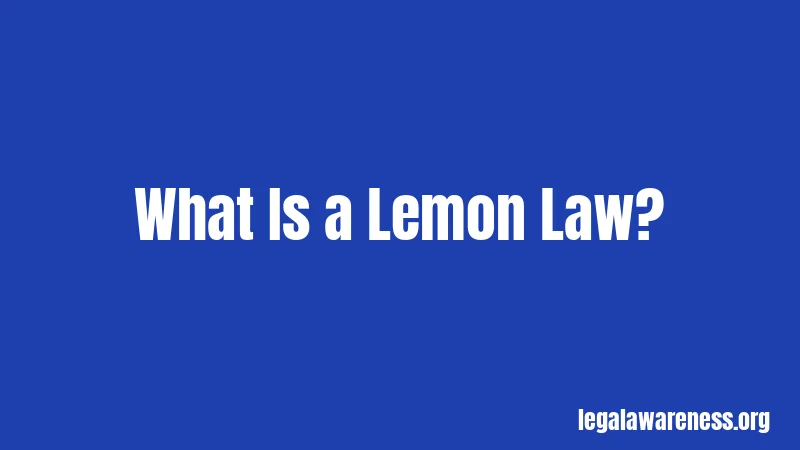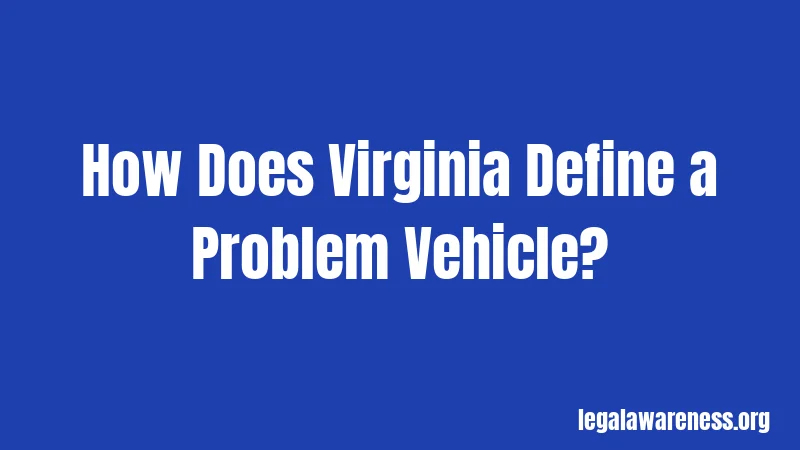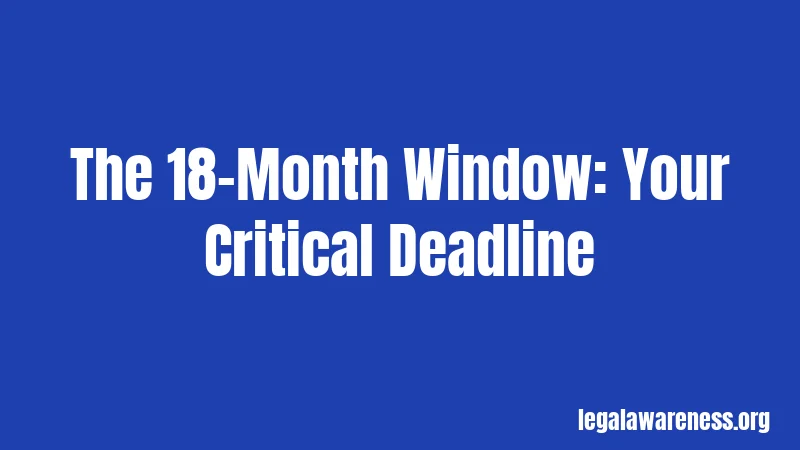Virginia Lemon Laws (2026): Your Protection Against Problem Cars
You just bought a new car. It felt amazing. Then the check engine light came on. Then it came back. And back again. Sound familiar?
Most people have no idea that Virginia has strict rules to protect you from this situation. These rules are called lemon laws. The good news? If your car is a lemon, Virginia’s law says the manufacturer has to fix it or buy it back from you.
What Is a Lemon Law?

Think of it like this: you buy a car in good faith. The manufacturer promises it will work properly. If it doesn’t, you shouldn’t be stuck with a broken vehicle.
Virginia’s lemon law is officially called the Motor Vehicle Warranty Enforcement Act. Honestly, this is the part most people miss. This law says that manufacturers must either repair your car properly or replace it completely. You might even get a full refund.
The law covers cars, trucks, motorcycles, and leased vehicles. It protects you when you have a defect that significantly impacts the vehicle’s use, value, or safety.
Understanding What Makes a Vehicle a “Lemon”
Not every car with a problem qualifies as a lemon. The defect has to be serious.
Your car qualifies as a lemon when a problem “significantly impairs” its use, value, or safety. This doesn’t mean it has to be undriveable. It just means the problem is significant enough to affect you negatively.
Here’s where it gets important: the defect must appear within 18 months of when you first received the vehicle. This is your window to take action. After 18 months, you lose your protection under Virginia’s lemon law.
How Does Virginia Define a Problem Vehicle?

Stay with me here. Virginia has specific criteria for what counts as a lemon.
Your car is presumed to have a serious problem if one of these three things happens within that 18-month window:
The Same Problem Gets Fixed Three Times (or More). You take the car to the dealer for the same issue. They fix it. It breaks again. You go back. This happens at least three times. That’s a lemon.
One Serious Safety Defect Gets Fixed Once. Maybe the brakes aren’t working properly. Or the steering has issues. These are safety problems. If a serious safety defect exists and happens even once, you could qualify for protection.
The Car Is in the Shop for 30+ Days in One Year. Your vehicle is out of service for repairs for a total of 30 days or more in one year. That counts. You shouldn’t have to live without your car that long.
The law covers defects that don’t even affect whether the car drives. Example? A broken air conditioning system or a malfunctioning infotainment screen. These make the car less enjoyable to use, and the law recognizes that.
Who Qualifies for Protection?
Wondering if you’re covered? Let me break it down.
Virginia’s lemon law protects you if you own certain types of vehicles. This includes passenger cars designed for up to 10 people. Pickup trucks and panel trucks under 7,500 pounds qualify too. Motorcycles, mopeds, and the motorized chassis of motor homes are covered.
Leased vehicles also get protection, but only if they came with a warranty. This is important. The warranty is what triggers your protection.
Your car must have been purchased or leased in Virginia. Out-of-state purchases don’t get the same protections. And your vehicle must be used for personal, family, or household purposes. Commercial vehicles don’t qualify.
Here’s where it gets tricky: used cars are only covered if they’re still under warranty and within that 18-month window. If you bought a used car that’s already beyond 18 months from the original purchase date, Virginia’s lemon law probably won’t help you.
Not sure what counts as a violation? The good news is Virginia defines this pretty clearly in their laws.
The 18-Month Window: Your Critical Deadline

This one’s crucial. Write it down. Remember it.
You have exactly 18 months from the date the manufacturer first delivered the vehicle to you. Not 18 months from when you bought it used. 18 months from the original delivery date to the first owner.
Within this window, you need to notice the problem and notify the manufacturer. You can’t wait until month 19 and expect protection.
If the manufacturer has been notified but hasn’t fixed the problem by month 18, they can’t use the time limit as an excuse. The time extends until they actually make the repairs.
But if you use an informal dispute resolution process (like going through a mediator), you get extra time. Your deadline extends to one year from the final decision. This gives you more time to pursue your claim.
What Happens Next? The Repair Attempts
Okay, pause. This part matters more than you think.
Once you notice a problem, you need to give the manufacturer a reasonable chance to fix it. You can’t just demand a refund on the first issue.
The dealership gets to try repairs. If the same problem happens three times and they can’t fix it, you’re in lemon territory. If it’s a safety defect, they only get one try. If the car is in the shop for 30 days total, you don’t need successful repairs at all.
Here’s what makes sense: keep every repair receipt. Document every visit. Note the date, the problem, and what the dealer claimed they fixed. This creates a paper trail.
When you go in for repairs, write down exactly what’s wrong. Don’t just say “the car feels weird.” Say “the transmission hesitates when shifting from first to second gear.” Specific details matter.
Your Rights Under Virginia Lemon Law
Now here’s where the law actually helps you.
If your car qualifies as a lemon, the manufacturer has two options. They can either replace your vehicle with a comparable car that you actually want. Or they can refund your full purchase price.
The refund covers your purchase price, all fees, and special charges you paid. It also covers incidental damages related to the defect. But here’s the catch: they subtract a reasonable allowance for your use of the vehicle.
The “reasonable allowance” is calculated from when you first told the manufacturer about the problem. It’s based on half the IRS standard mileage rate, plus any loss in the vehicle’s market value. Think of it as fair wear and tear.
If you get a replacement vehicle, they apply the same allowance. You don’t get a brand-new car for free, but you get something comparable.
For leased vehicles, it’s slightly different. The lease must be terminated without any penalty to you. The manufacturer essentially takes over your lease.
How to Start the Process
You’re not alone. This confuses a lot of people.
First, write a formal letter to the manufacturer. Address it to the exact contact provided in your warranty documents or owner’s manual. Most cars have a specific address for these notices.
Your letter should include your vehicle’s year, make, model, and VIN. List every repair visit. Include the dates and what problems you reported. Attach copies of all repair orders. Keep the originals for yourself.
State clearly that you want the problems fixed once and for all. Request a buyback under Virginia’s lemon law if they can’t fix the issues.
Send this letter certified mail with return receipt. This proves the manufacturer received it and when. Keep that green card. It’s your evidence.
The manufacturer has 15 days from receiving your letter to contact you. They need to schedule a final repair attempt. If they don’t respond within 15 days, that’s a sign to contact a lawyer.
If they do attempt repairs but the problem comes back, you have clear grounds for a claim.
When the Manufacturer Refuses or Doesn’t Respond
This is where legal help becomes important.
If the manufacturer doesn’t respond within 15 days, or if they can’t fix the problem, you have options. You can file a claim through an informal dispute resolution process. Virginia recognizes several programs that handle these disputes.
The BBB Auto Line Program handles many manufacturer disputes. Going through this informal process doesn’t cost you anything. If it works, you get your remedy. If it doesn’t, you can still sue in court.
If you decide to file a lawsuit, you must do it within 18 months of your original delivery date. Or, if you tried informal dispute resolution, you have 12 months from the date of the final decision.
Here’s the good news: if you win your case, the manufacturer often has to pay your attorney fees. This means many lawyers will take these cases without charging you upfront.
Special Circumstances: Used Cars and Leased Vehicles
Sound complicated? It’s actually not.
Used cars have limited coverage. They’re only protected if they’re still under manufacturer warranty and within the 18-month window from original delivery. If you bought a used car, check the warranty status immediately.
Get the original purchase papers if possible. Call the manufacturer and ask about the warranty. This could save you weeks of confusion.
Leased vehicles get strong protection. If your lease agreement includes a manufacturer warranty, you’re fully covered. The protection is identical to owned vehicles.
If your leased car qualifies as a lemon, the lease terminates without penalty. You walk away. The manufacturer absorbs the costs.
Lemon Law Buybacks: What You Need to Know
Something important happens when a car is returned as a lemon.
Virginia requires dealers and manufacturers to disclose when a vehicle is a lemon buyback. This means it was returned to the manufacturer, then resold. If you’re buying a used car, you have the right to know this history.
Ask the dealer directly: “Has this car ever been returned to the manufacturer as a lemon?” Request the vehicle’s defect history. You can look up the VIN to find repair records.
This protects you from buying the same lemon someone else already returned. It’s one of the smartest things you can do when shopping for a used car.
What Happens if Abuse or Neglect Caused the Problem?
Here’s where manufacturers push back.
The manufacturer can defend a lemon law claim if they prove the problem was caused by your abuse, neglect, or unauthorized modifications. Abuse means intentional damage. Neglect means you failed to maintain the car properly.
Example: If you never changed the oil and the engine fails, that’s neglect. If you drove through a flooded street and the transmission breaks, that’s not necessarily abuse.
The manufacturer carries this burden. They have to prove it. You don’t have to prove you took care of the car. This protects most reasonable owners.
If you’ve maintained your vehicle normally and followed the manufacturer’s recommendations, you’re on solid ground.
Penalties and Remedies: What You Can Recover
Let’s talk about what the manufacturer owes you.
The primary remedy is a full refund or replacement vehicle. But it doesn’t stop there.
You can recover incidental and consequential damages. What does that mean? It covers rental car costs while yours was being repaired. It covers transportation expenses. It covers any other costs directly related to having a defective vehicle.
If you win through an informal dispute or in court, attorney fees usually come from the manufacturer. This is huge. It means you can afford legal help without paying out of pocket.
You might also recover diminished value. This applies when your replacement vehicle has less market value because of the repairs it needed. It’s about fair compensation.
Contact Information for Help
You don’t have to figure this out alone.
Virginia’s Attorney General Consumer Protection Section handles lemon law questions. Call them at (800) 552-9963 if you’re in Virginia. From outside Virginia or the Richmond area, call (804) 786-2042.
The Virginia State Bar Lawyer Referral Service can connect you with an attorney. Call (800) 552-7977 statewide and nationwide. From Richmond, call (804) 775-0808.
Many lawyers offer free consultations for lemon law cases. Take advantage of this. An attorney can review your situation and tell you exactly where you stand.
The BBB Auto Line Program also handles disputes. It’s free, and many manufacturers participate.
Frequently Asked Questions
What if my car has multiple different problems instead of one problem three times? Virginia lemon law covers both situations. Three repairs of the same issue is one path. But you might also qualify if you’ve had six different repair attempts total for various problems, or if the car’s been in the shop for 30 days total. Different problems can add up.
Can I get a lemon law refund if I’m still making payments on the car? Yes. The refund covers the full purchase price. The manufacturer pays off any remaining loan balance to your lienholder. You don’t have to pay them back personally.
What if I bought the car out of state but now live in Virginia? Virginia’s law applies to vehicles purchased in Virginia. If you bought it elsewhere, you might need to use that state’s lemon law instead. Check where the original delivery occurred.
How long does the lemon law process actually take? Informal disputes usually take 30-90 days. If you need to file a lawsuit, it could take 6-12 months or longer. Having an attorney speeds things up significantly.
What vehicles aren’t covered by Virginia’s lemon law? Commercial vehicles, vehicles over 10,000 pounds, used cars beyond the 18-month window or without warranty, and vehicles with problems caused by your abuse or neglect aren’t covered.
Do I need a lawyer to pursue a lemon law claim? No, you can try on your own. But honestly, having a lawyer protects your interests. Many take these cases on contingency, meaning you don’t pay unless you win.
Final Thoughts
Now you know the basics of Virginia’s lemon law. Stay informed, keep detailed records, and don’t hesitate to contact the Attorney General’s office if you think you have a lemon.
If your car has serious, recurring problems, you have rights. Virginia’s law is actually pretty strong. You’re not stuck with a defective vehicle forever.
When in doubt, look it up or ask a lawyer. That 18-month window moves fast. Don’t wait around wondering if you qualify. Take action while you still can.
References
Virginia Motor Vehicle Warranty Enforcement Act – Official Statute
Virginia Department of Motor Vehicles – Lemon Law Information
Virginia Attorney General – Consumer Protection Section
